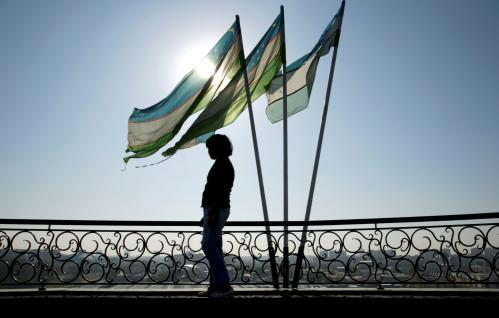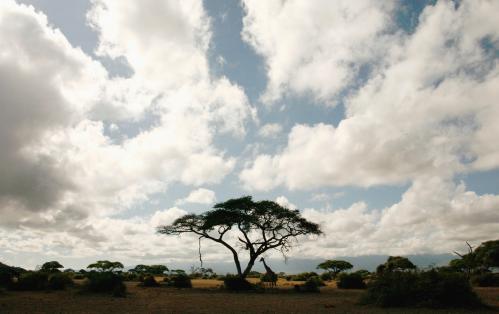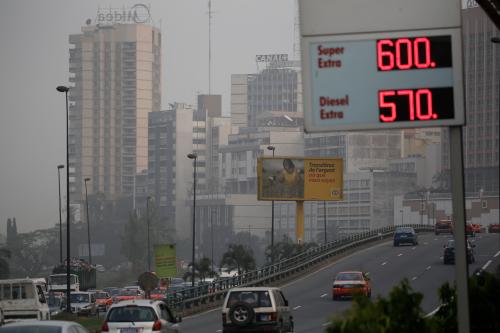Gambian elections yield new President Adama Barrow
On Thursday, December 1, Gambians voted in general elections to replace the 22-year incumbent President Yayah Jammeh with Adama Barrow, a property developer leading a coalition of seven opposition parties. According to electoral commission chief Alieu Momar Njie, Barrow won by more than 50,000 votes: He received 263,515 votes, while Jammeh got 212,099 and Mamma Kandeh got 102,969 votes. Jammeh agreed to concede the election as of Friday, December 2, marking the first democratic transition of power in the Gambia since 1965.
The results stunned local and international observers alike given Jammeh’s long rule and history of repressing of political opponents, according to human rights groups. In April and May, following the death of an opposition member in jail, anti-government protests resulted in the arrest of 30 more protesters for not registering their gathering ahead of time. In the advance of the elections, the president banned demonstrations, established a blackout on the internet and international phone calls, and neglected to comment on whether he would concede if his opponents won, provoking concerns that electoral fraud or violence could take place on voting day. Nevertheless, elections were carried out with no major incidents and voter turnout appeared to be high, according to the U.S. State Department.
Fitch reviews South Africa and Mozambique’s credit ratings
During the past two weeks, the Fitch rating agency revised the credit rating outlook of two African countries: South Africa and Mozambique. Last Friday, the outlook for South Africa was cut from stable to negative. Still, the rating agency kept the credit rating at BBB-, one level above junk, as the agency warns that a continuation of South Africa’s current political situation could result in a further downgrade.
Mozambique’s long-term foreign currency (LTFC) debt was also downgraded to restricted default (RD), indicating that the country has “experienced an uncured payment default on a bond, loan, or other financial obligation.” Fitch’s sovereign review of Mozambique was not due until April 2017. However, a report released on November 21 by the Ministry of Economy and Finance disclosed that, in May, the country failed to make a $535 million loan payment to state owned enterprise the Mozambique Asset Management. Mozambique’s previous rating stood at CC, which indicates “very high levels of credit risk.” The country’s present LTFC rating now stands one level above “default.”
On Monday, Zimbabwe’s central bank introduced new bond notes into the country’s money supply, however the introduction of these bond notes has not been accepted by the wider Zimbabwean public. Residents claim that many vendors have been rejecting the note while others charge a higher price to customers wishing to use the notes. Many have taken to the streets to protest the country’s new currency, as they fear it will revive hyperinflation in the southern African nation.
Confusion, arrests, and deaths in Uganda as security forces clash with local tribal king
On November 27, Ugandan police and security forces stormed the palace of a local tribal king, Charles Wesley Mumbere of the Rwenzururu kingdom, resulting in the deaths of anywhere between 62 and 100 people and the arrests of at least 149, including the king. Though this week Mumbere was arrested for the murder of a police officer earlier this year, the government says it will add the charges of terrorism, destruction of property, and murder after further investigation.
Causes of the deadly incident as well as the events during remain hazy. Government spokesman Andrew Felix Kaweesi has stated that the incident was sparked when police forces were first attacked by the royal guards with a grenade, though locals claim they only carry traditional weapons such as spears and bows and arrows. There has already been long-standing tension between President Yoweri Museveni and Mumbere: In fact, the king supported the opposition in the most recent election. In addition, serious clashes between security forces and the royal guard, again claiming to only wield arms such as machetes, spears, bows and arrows occurred in 2014. Calls from citizens of the eastern Ugandan area of Ruwenzori for secession are not unusual, and there has been a violent rebel movement towards the creation of a separate state. However, the link between the king and militia secessionist groups remains somewhat unproven.
On the other hand, the government has accused Mumbere of arming and even leading rebels in the area. Colonel Shaban Bantariza, a government spokesman, has claimed that these secessionists have not only set up military camps, but have also formed a rebel government, even printing its own currency. Captain Mike Mukula recently argued that Mumbere has been breaking an agreement reached earlier this year to hand over rebels in the area and disband local militias and has instead been covering for them. Amnesty International, though, has called this attack a “massacre,” which has “shocking examples of unlawful killings.” Rumors have swirled of other offenses by the police as well.
Scientists discover Africa’s tallest tree
This week, the tallest tree in Africa was found on Mount Kilimanjaro. The tree, the sixth tallest in the world stands at 81.5 meters (a little over 267 feet). The discovery is the result of a four-year research project conducted by Swiss and German scientists, using laser instruments to appropriately assess the height of 32 specimens growing on Mount Kilimanjaro. The finding constitutes an anomaly, as Africa is not particularly known for hosting tall trees. According to New Scientist, though, this is mainly due to the lack of studies on Africa’s vegetation. As dendrologists direct their research efforts towards the continent, one could expect similar discoveries. Amid this finding, scientist call for the protection of the area in which the tree was found as it is notably vulnerable to illegal logging.






Commentary
Africa in the news: The Gambia votes, Fitch reviews South Africa and Mozambique’s credit ratings, and Ugandan tribal king attacked
December 2, 2016